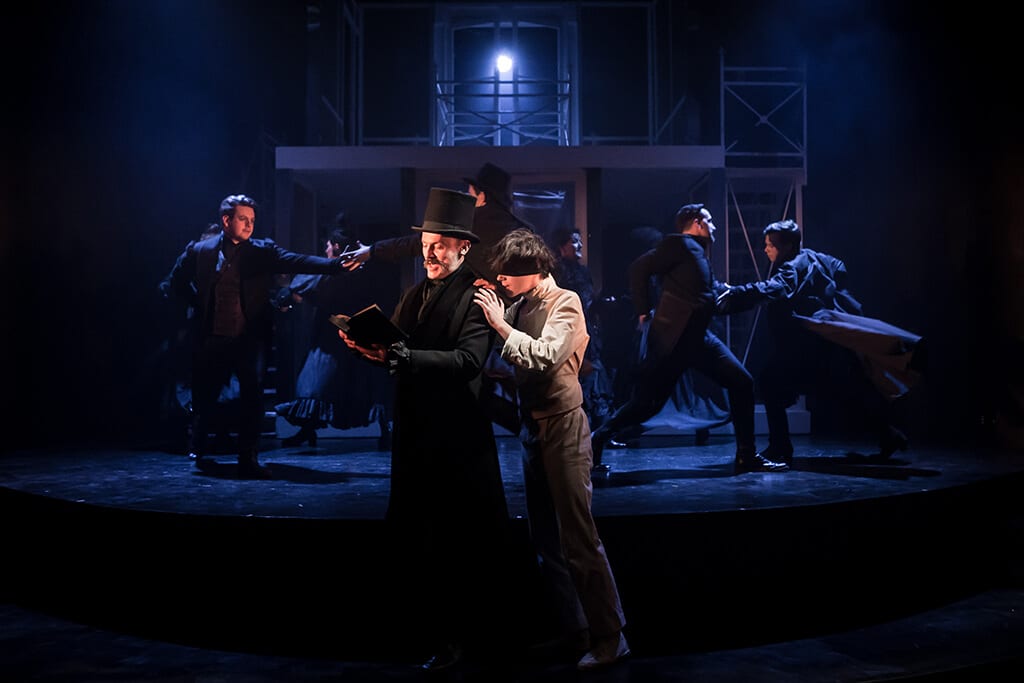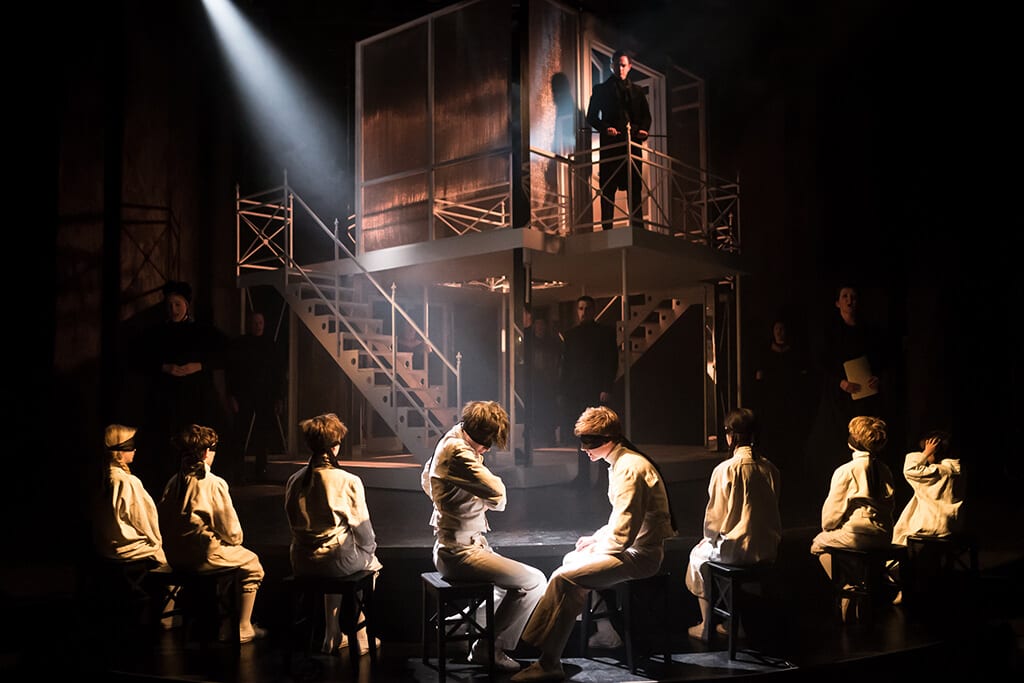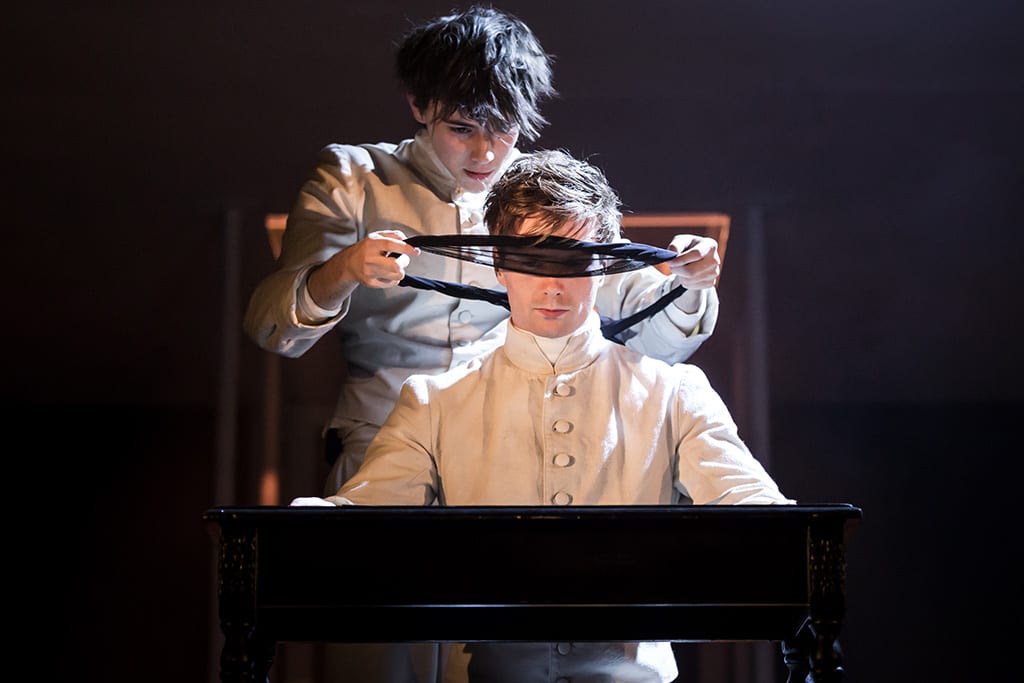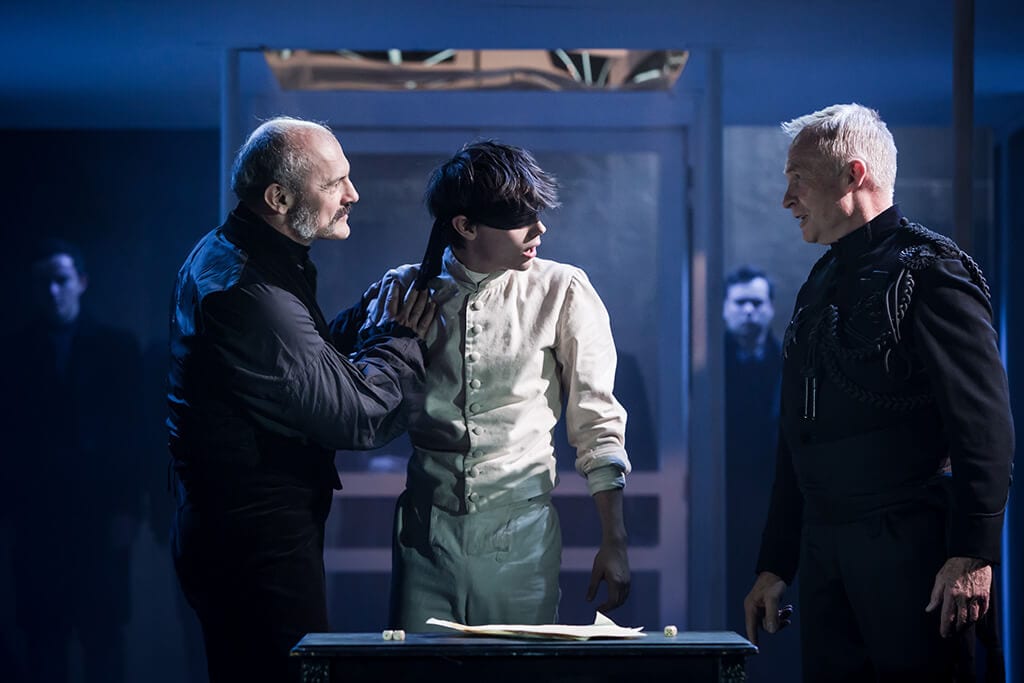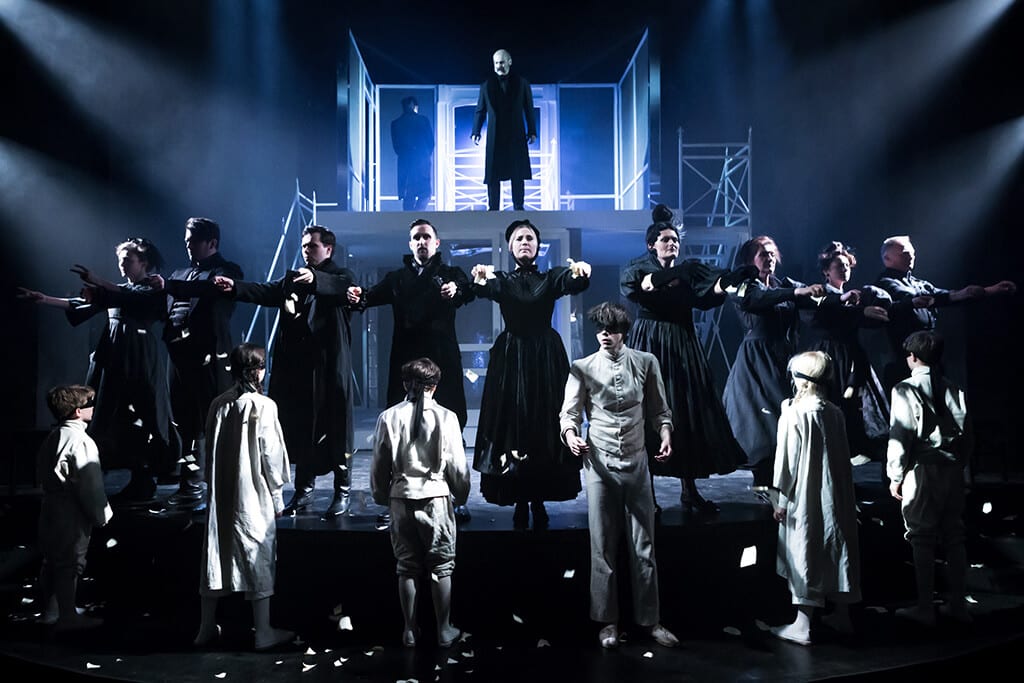Being the story of a man with apparently boundless devotion to his chosen field, who died relatively young (43) had the moral rectitude of a saint, and containing absolutely no hint of sex whatsoever, the story of Louis Braille was one which used frequently to lend itself to use in school assemblies.
I’m not so sure that it’s a story though which lends itself quite so well to the musical theatre treatment. Or perhaps I should say THIS musical theatre treatment…
The Braille Legacy, which has just opened at The Charing Cross Theatre, might well have sounded cutting-edge and fresh had it had its first performance in 1985, but in the context of being presented in 2017 I’m afraid it sounds very much like what it is; a lovingly created homage to be laid on the alter of Les Miserables.
Did I say homage? My mistake. I meant rip-off. As in, a good number of the songs appear both in form and function to have been modelled pretty closely on the older work, more of which later if space permits, however to THIS show.
The story is set in Paris between 1824 and 1852 (nicely overlapping with the 1832 setting of the principal events of Les Mis!) when our hero, Louis Braille (Jack Wolfe, making a very secure professional debut) blinded in an accident at an early age, is now about 15, and is a pupil at the underfunded Royal Institute for Blind Youth in Paris where he stands out as being rather more intelligent than the other children and won’t accept that his lot needs to be begging and basket-making.
Although Mr Wolfe makes the best he can of his part, he’s hampered by two monumental deficiencies with the book, both stemming from the fact that the writers are labouring under the misapprehension that their show is about a man who invents a system of dots on paper. It isn’t, it’s about a man who wants to ‘fit in’.
Firstly, as Braille makes for an almost totally passive lead character – and the importance of small bumps on a piece of paper is extremely difficult to show on stage, it seems…
Secondly, no matter how much Mr Wolfe’s performance endears him personally to us, the first fifteen minutes of the show don’t work as they should. Braille (the man) does not have a song during which we can invest our emotional capital in him, so we watch the show largely as dispassionate viewers rather than active participants.
He does have a song in the local library ‘In these words I see’ which basically says he loves books. So? Unfortunately, it’s exactly where his ‘I Want’ song should be. To add insult to injury, he then has a scene with Madame Demeziere (Ceili O’Connor) where he actually tells her exactly what SHOULD have been in his ‘I want’ song.
The writers try to compensate for Braille’s near-sainthood by making the director of the blind school, Dr Pignier (Jerome Pradon, excellent) the active character, but sadly this only draws attention to the title character’s wetness.
And Act Two? Things just sort of fall apart…
On the plus side…The cast is very well dressed by Jonathan Lipman, Thom Southerland’s direction is as spot on as we’ve come to expect, and the set looks good, and works well, even if it seemed at times as if it was in need of some cross-bracing.
The whole cast is never less than excellent. This is just never a show which is going to run for thirty years…
I’m out of space, but I’ll just add… ‘Liberte, Egalite, Fraternite’/‘Do you hear the people sing’, ‘The Sun will never rise again’/’Empty Chairs at Empty Tables…’

